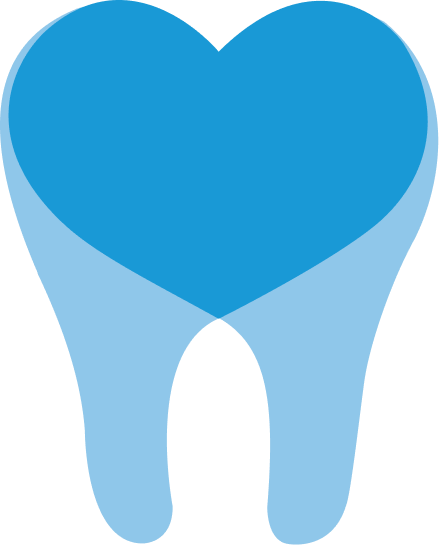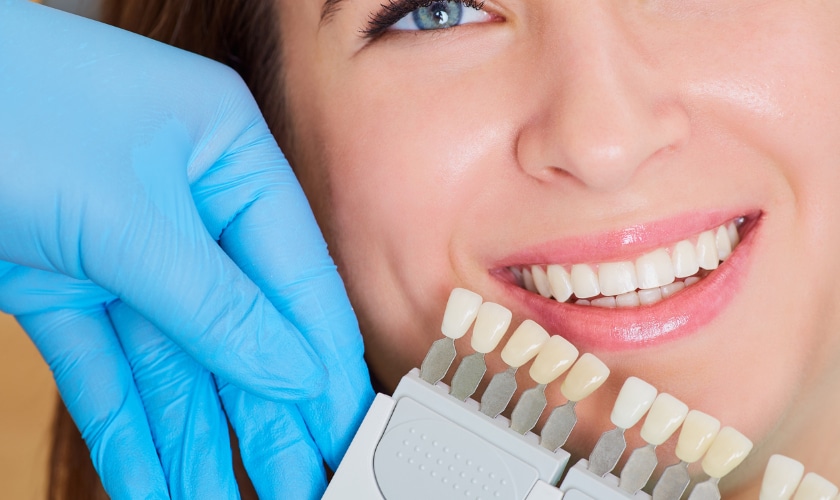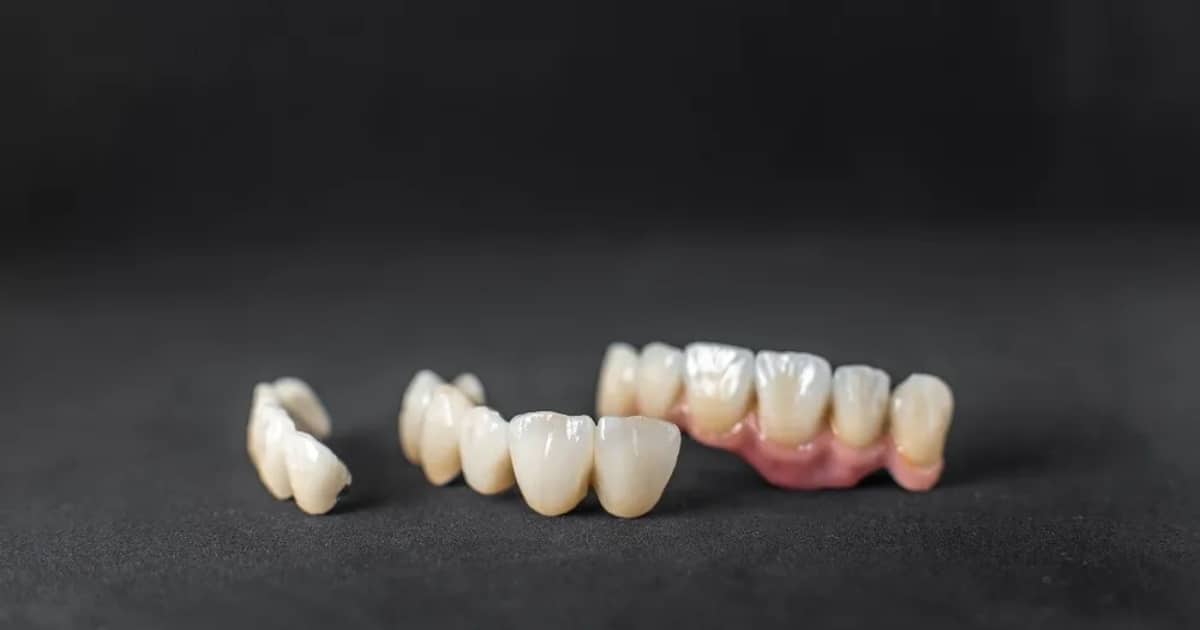Call: (630) 812-7929
5 Benefits of Dental Crowns That You Never Knew Existed


“Your smile is the first thing that people notice about you. But if you’re like most of us, there may be a few things that make your pearly whites less than perfect. Fortunately, dental crowns are an excellent solution for a variety of dental issues – and their benefits go far beyond just improving your appearance! From protecting weak teeth to restoring functionality, in this blog post, we’ll explore five benefits of dental crowns that you never knew existed.”
What are Dental Crowns?
Dental crowns are one of the most versatile and commonly used dental treatments. Crowns can be used to restore a damaged tooth, improve its appearance, or support a dental bridge.
There are several different types of crowns available, each with its own advantages. The type of crown your dentist recommends will depend on the tooth being treated and your individual needs.
The most common type of crown is the porcelain-fused-to-metal (PFM) crown. This type of crown offers both strength and durability while still providing a natural-looking appearance. Porcelain crowns are also an option for patients who are allergic to metal or who want a completely metal-free restoration.
Another popular option is the all-ceramic or all-porcelain crown. These types of crowns are made entirely from ceramic materials, giving them a natural look that closely resembles that of healthy tooth enamel. All-ceramic and all-porcelain crowns are often used to treat front teeth because of their lifelike appearance.
No matter which type of dental crown you choose, you can rest assured that your smile will be restored to its former glory!
Benefits of Dental Crowns
If you have a tooth that is severely damaged, a dental crown can help to restore it. Here are some benefits of dental crowns that you may not be aware of:
1. Dental crowns can help to protect a damaged tooth from further damage.
2. If you have a tooth that is chipped or cracked, a dental crown can help to prevent the damage from getting worse.
3. Dental crowns can also help to improve the appearance of your smile by covering up damaged or discolored teeth.
4. Crowns can also be used to support a tooth that has had a root canal procedure.
5. In some cases, dental crowns can be used to help hold together parts of a broken tooth.
– Improved Aesthetics
A dental crown is a type of dental restoration that encases the entire tooth. Crowns are used to restore teeth that are cracked, broken, or worn down. They can also be used to support a dental bridge or to cover a dental implant.
Crowns are made from a variety of materials, including porcelain, ceramic, and metal. Porcelain and ceramic crowns are the most popular because they look more like natural teeth. Metal crowns are usually used for back teeth because they are stronger than porcelain or ceramic crowns.
There are many benefits of dental crowns that you may not be aware of. Here are just a few:
1. Improved Aesthetics – Dental crowns can dramatically improve the appearance of your smile. If you have misshapen, discolored, or otherwise damaged teeth, crowns can give you the beautiful smile you’ve always wanted.
2. Better oral health – Crowns can help to protect your teeth from further damage and decay. By encasing the entire tooth, crowns act as a barrier against bacteria and plaque build-up. This can help to prevent cavities and other problems associated with poor oral hygiene.
3. Enhanced chewing ability – Dental crowns can make it easier to chew your food properly. If you have weak or damaged teeth, chewing can be difficult and even painful at times. Crowns can help to restore your chewing ability
– Protection for Weak Teeth
Dental crowns are an excellent way to protect weak teeth. They can be used to cover a tooth that is cracked, chipped, or otherwise damaged. Crowns can also be used to support a tooth that has been weakened by decay. In addition, crowns can be used to hold a dental bridge in place.
– Strengthen Teeth After Root Canals
If you’ve recently had a root canal, you may be wondering if there is anything you can do to further strengthen your teeth. While root canals are designed to remove infection and protect your tooth, they can sometimes leave your tooth feeling weak. A dental crown can help to further strengthen your tooth and prevent any further damage.
Dental crowns are commonly used after a root canal to help protect the tooth from future damage. The crown covers the entire tooth, restoring it to its original shape and size. This not only helps to improve the appearance of your smile but also provides additional support for your tooth.
Crowns can also be used to prevent future damage to teeth that have been weakened by decay or injury. By covering the damaged area of the tooth, crowns provide extra support and protection, helping to keep your teeth healthy for years to come.
– Restoration of Broken Teeth and Fillings
Dental crowns are often thought of as a last resort for restoring a tooth that is severely damaged. However, dental crowns offer many benefits that you may not be aware of. Here are some of the benefits of dental crowns that you never knew existed:
1. Dental crowns can restore a tooth that is broken or has been severely damaged.
2. Dental crowns can protect a tooth from further damage.
3. Dental crowns can improve the appearance of your smile.
4. Dental crowns can help to prevent tooth decay.
5. Dental crowns are very durable and long-lasting.
– Reduced Tooth Sensitivity
If you have ever experienced sensitive teeth, then you know how uncomfortable it can be to eat or drink anything hot or cold. Sensitive teeth are often the result of worn enamel, which exposes the inner layers of your teeth. Dental crowns can help to reduce tooth sensitivity by protecting your tooth enamel and providing a barrier against hot and cold temperatures.
In addition to reducing tooth sensitivity, dental crowns can also improve the appearance of your smile. If you have a misshapen or discolored tooth, a dental crown can cover it up and give you a more uniform smile. Crowns can also be used to restore a cracked or chipped tooth.
If you are considering getting dental crowns, be sure to consult with your dentist about all of the potential benefits. Crowns can last for many years with proper care, so they are a great investment in your oral health!

How to Care for Dental Crowns?
Dental crowns are an important part of maintaining oral health. Here are a few tips on how to care for dental crowns:
1. Brush and floss your teeth regularly. This will help remove plaque and bacteria from around the crown and prevent decay.
2. Avoid hard foods that can damage the crown, such as nuts and candy.
3. See your dentist regularly for checkups and cleanings. This will help ensure that the crown is still in good condition and catch any problems early.
Conclusion
Dental crowns can be a great investment that pays off in the long run. Not only do they protect and strengthen teeth, but they also help to improve your overall appearance and make sure you have healthy, beautiful teeth for years to come. With the five benefits outlined here, it’s easy to see why dental crowns are an important part of any person’s oral health care plan. So if you need a dental restoration or just want to support your existing smile – consider investing in a dental crown today!
Dental crowns offer many benefits, including:
-Improved appearance: Dental crowns can be made to match the color, shape, and size of your natural teeth, so they can blend in seamlessly with your smile.
-Improved function: Dental crowns can help protect weak or damaged teeth from further damage and restore their ability to function properly.
-Improved oral health: By protecting weak or damaged teeth, dental crowns can help prevent further oral health problems from developing.
There are very few risks associated with dental crowns. In rare cases, the crowned tooth may become sensitive to hot or cold temperatures. If this occurs, it is usually temporary and will resolve on its own.



